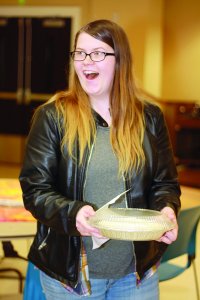My path towards understanding

At its February meeting, the KFTC Steering Committee established a Racial Justice Ad Hoc Workteam whose purpose is to develop a workplan for educating members and chapters on racial justice issues this year. As part of its work, the Team hopes to have something in each issue of Balancing the Scales related to racial justice issues. Sometimes that might be an update on local work; sometimes it might be an educational/historical piece; sometimes it might be a personal reflection. This piece, originally printed in our April 2015 issue of Balancing the Scales, comes from Madison County member Megan McKinney.
While Kentucky certainly holds a special place in my heart, I’m actually a native Tennessean. As such, I often feel my heart swell with pride whenever I hear or see any reference to Memphis-style BBQ, a very bright shade of orange, or the great Dolly Parton. Sadly, I always seem to remember a bit of the bad, as well. Shortly after the Civil War, six Confederate veterans got together to create an organization to oppress African Americans. The Ku Klux Klan has become one of the most infamous hate groups in the entire world, and it was started in humble Pulaski, Tennessee. This history wasn’t actively taught when I was in secondary school. However, some of those same values were still evident. While I cannot remember any active racial violence, I can very clearly recall the prejudices and the hate-filled speech. I remember hearing my father frequently using the N-word. I recall how my mother would become obviously uncomfortable and mumble “that’s just not right” whenever she saw an interracial couple. Many years later, I can still easily count the number of non-white students in my grade in elementary school: three African-Americans, three Hispanics, no Asians.
When I chose to attend Berea College, I honestly knew nothing about it besides that there was no tuition and it was in Kentucky. I certainly never could have guessed that it was the first interracial college in the South. When I entered into my freshman year, I brought so many unknown prejudices with me. As I began championing for social justice and political causes, I was able to honestly and sincerely interact with blacks, Latinos, Asians, and many other types of people. After each conversation, I would realize just how stupid and wrong my preconceived notions were. Slowly, the blindfold was lifted from my eyes and I began to see how my privileges and securities weren’t always afforded to others. Following the Trayvon Martin trial, I wept. After Mike Brown and Eric Garner, I was furious. This is 2015, yet these injustices still happen. Over Spring Break, I mentioned to a relative how I’d been a part of a few of the Black Lives Matter demonstrations and had been becoming more engaged on the race issue. This relative was perplexed. They asked me, “Honey, you don’t have a dog in that fight. Why do you care?” I care because injustice impacts us all. To quote the great Martin Luther King, Jr.: “Whatever affects one directly, affects all indirectly.” We all have a dog in this fight, and we should continue striving for justice.
Recent News
Kentucky’s past legislative session showed alarming trend toward government secrecy
Churchill Downs takes more than it gives. That's why the Kentucky Derby is a no-go for me
‘We must never forget.’ Kentucky town installs markers for lynching victims.
Featured Posts
Protecting the Earth
TJC Rolling Out The Vote Tour – a KFTC Reflection Essay
KFTC Voter Empowerment Contractor Reflection Essay
Archives
- Home
- |
- Sitemap
- |
- Get Involved
- |
- Privacy Policy
- |
- Press
- |
- About
- |
- Bill Tracker
- |
- Contact
- |
- Links
- |
- RSS

